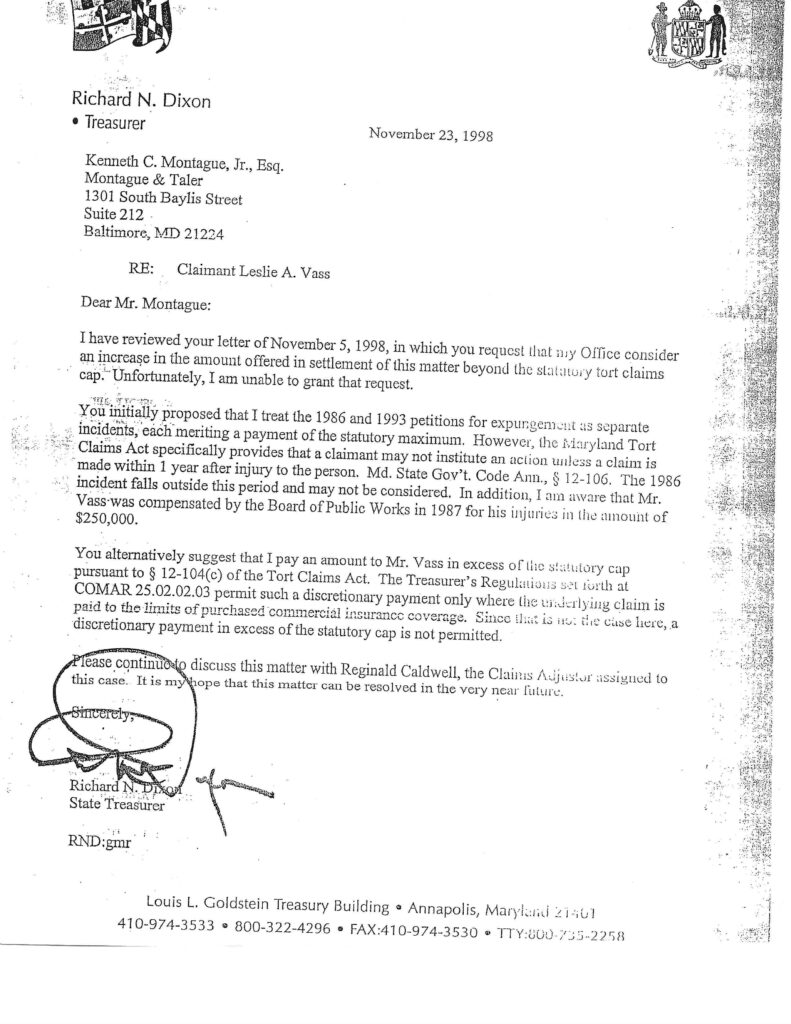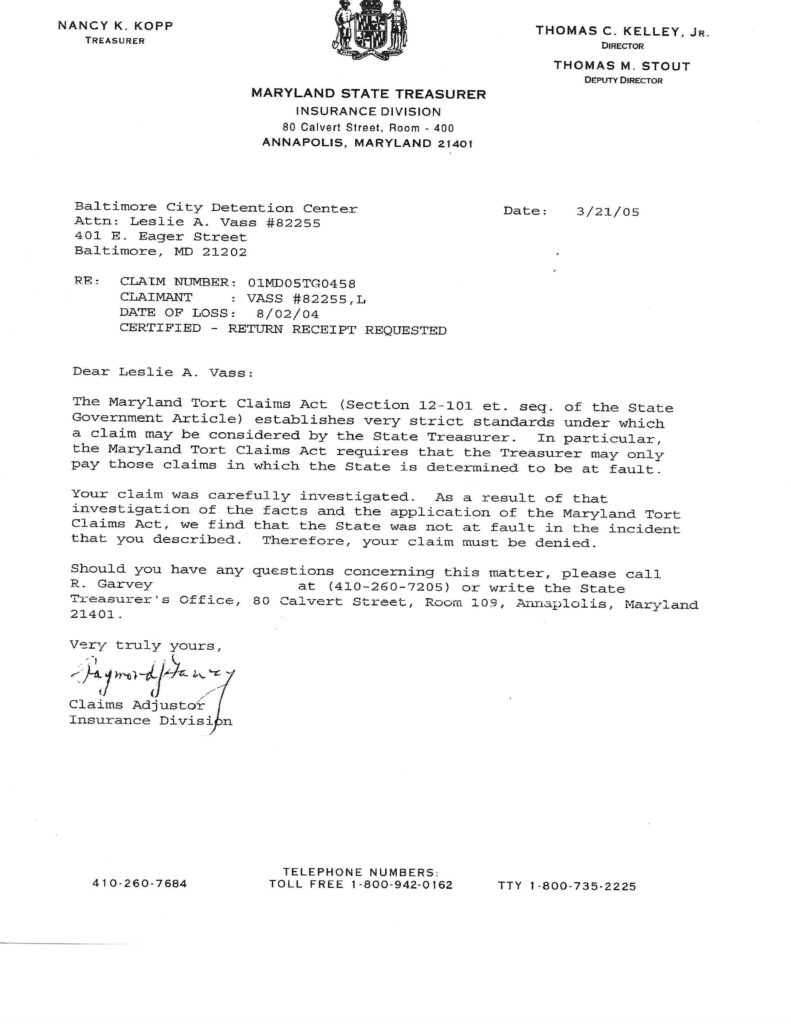Wrongful convictions don’t just take away time, they take away careers, reputations, health, family stability, and trust in the system. For those who’ve been failed by the justice system, a tort claim is one of the few legal avenues available to seek redress.
Tort claims are civil filings that assert a government entity, whether it’s the police, district attorney, or another agency, violated an individual’s rights, resulting in damages. In the context of wrongful convictions, tort claims often highlight official misconduct, evidence suppression, malicious prosecution, or violations of due process.
A Life Stolen — and Still No Meaningful Compensation
After nearly a decade wrongfully imprisoned, Leslie Vass asked the State of Maryland to reconsider the limited financial compensation he had received. The response? A flat denial.
No adjustment. No acknowledgment of the years lost. No consideration for the fact that:
- His record was never fully cleared, despite expungement orders
- He was denied employment and housing opportunities for years
- He lost the most critical years of his young adult life — time meant for education, building a career, starting a family, and laying a foundation for the future
Instead of recognizing the true cost of wrongful conviction, the state treated his suffering as a closed transaction. As if a small settlement could repay the theft of a future. As if the system that failed him owed him nothing more.
This is not justice, this is damage control. And for exonerees like Leslie Vass, it sends a painful message:
“We admit we were wrong, but we’re done making it right.”

The Harsh Reality: Tort Claims Are Denied With Ease
Winning a tort claim after a wrongful conviction isn’t as simple as showing the truth. In most states, including Maryland, the burden falls entirely on the exoneree, the person already failed by the system, to prove that the state not only got it wrong but acted with fault, negligence, or misconduct.
Technicalities, time limits, and procedural barriers are often used to deny even the most justified claims. Many states reject lawsuits:
- Because too much time has passed, even when that delay was due to the state’s own errors
- By arguing that no government employee acted “maliciously,” even when mistakes cost years of freedom
- Without acknowledging the emotional, financial, or reputational harm done
In 2005, Leslie Vass’s tort claim was denied, not because he wasn’t wrongfully convicted (he was), but because Maryland argued it wasn’t their fault and that he had waited too long. This is the pattern across the country: those who suffer the most are asked to do the most to prove they deserve justice.
For many exonerees, a tort claim becomes just another legal obstacle, not a path to healing. It reveals how the system protects itself, even after admitting it was wrong.

For both Leslie Vass and others who’ve experienced similar harm, filing a tort claim is not just about money. It’s about accountability. It’s about putting on record that what happened wasn’t just a “mistake,” it was the result of systemic failures and avoidable decisions.
In my own case, like many others, the issues stretch beyond the courtroom. The consequences ripple into every aspect of life, from employment loss to being cut off from your own children, to being labeled a criminal when the evidence was never properly considered in the first place.

Tort claims serve as a legal step toward holding individuals and institutions responsible. They shine a light on patterns of misconduct and send a message: the government must not be allowed to violate constitutional rights without consequence.
If we want real justice reform, we must amplify these cases and challenge the culture of impunity. Tort claims are one tool in that larger fight.

Leave a Reply